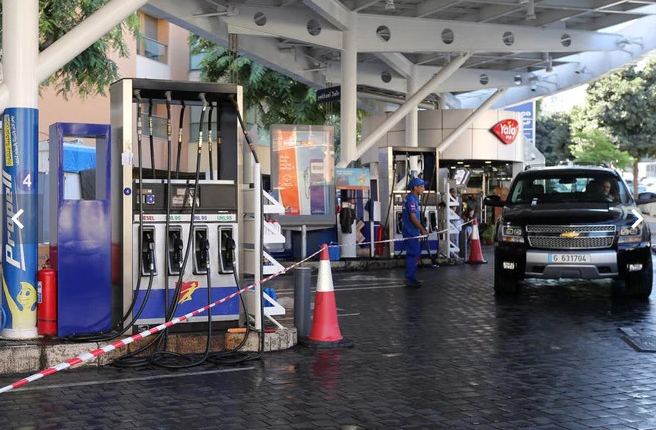jassemajaka@gmail.com

Fuel sector strike shuts Lebanese gas stations as cash dollars run dry
ArabNews | NAJIA HOUSSARI
- Gas station owners said the walkout was to highlight their “material losses resulting from the dollar exchange rate”
- On some forecourts, station owners held up pump hoses in protest over losses resulting from a national shortage of cash dollars
BEIRUT: Motorists in Lebanon on Wednesday found the majority of gas stations closed due to a one-day strike by fuel sector companies and workers.
On some forecourts, station owners held up pump hoses in protest over losses resulting from a national shortage of cash dollars.
Fuel in Lebanon is normally purchased from import companies and suppliers in US dollars and sold in Lebanese pounds. But the country’s banks have been holding back from handing out large sums of the currency in hard cash.
The warning strike involved import, distribution and tanker companies as well as gas stations selling petroleum products, and according to the National News Agency (NNA) received 97 percent support.
Gas station owners said the walkout was to highlight their “material losses resulting from the dollar exchange rate.”
In the absence of dollars in large quantities in Lebanese banks, many fuel dealers have had to turn to exchange houses which sell dollars at rates of up to 1,550 Lebanese pounds, above the official exchange rate of 1,500 Lebanese pounds.
Economist Jassem Ajaka blamed the situation on international sanctions imposed on Hezbollah. He told Arab News: “The problem is not a dollar shortage in Lebanon, but the fact that it is being used as cash money.”
Lebanese Parliament Speaker Nabih Berri said on Wednesday that “the siege and economic sanctions imposed on Lebanon do not affect certain persons or category, nor do they affect the resistance, as some believe, but they impact all the Lebanese people.”
Ajaka added: “In France, for instance, when the amount exceeds $500 (SR1,875), they request receiving it by bank transfer or an ATM card. In Lebanon, there is no restraint, and people prefer to use cash money. As a result of the increased sanctions, a certain development forced banks to abstain from giving large amounts of cash money.
“Lebanon has a surplus of the hard currency, and the Central Bank declared a week ago that it has deposits of $1.4 billion. Thus, there is no problem in the dollar matter. People should get accustomed to bank transfers.”
Lebanese MP Bilal Abdallah objected to the strike, arguing on social media that it was “unacceptable that Lebanese citizens are victims of the dollar game between oil companies, gas stations and banks.”
He tweeted: “With whom and against whom is the strike? Your companies and stations reap profits from citizens, whom you force to wait and whom you give anxiety. This is shameful. Where is the State and the bodies concerned with the protection of peoples’ rights?”

